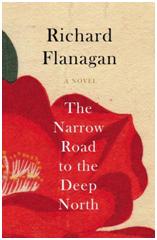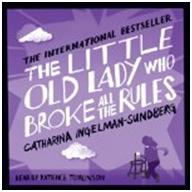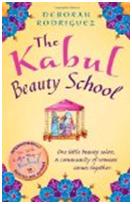
 Normally I would not read (or listen to) a book like this as it is far from my comfort zone, centring as it does on the construction of the Thailand Burma railway by the Japanese combined with the romantic liaisons of the main character. And it is the winner of the man Booker Prize 2014. Somehow, the prize seems to be won by difficult books that can only be read by enthusiasts, selected by experts, and I just do not have that literary background. OK – so I have actually read some of the other books that have won, and enjoyed them – such as the Life of Pi and Mantel's Wolf Hall.
Normally I would not read (or listen to) a book like this as it is far from my comfort zone, centring as it does on the construction of the Thailand Burma railway by the Japanese combined with the romantic liaisons of the main character. And it is the winner of the man Booker Prize 2014. Somehow, the prize seems to be won by difficult books that can only be read by enthusiasts, selected by experts, and I just do not have that literary background. OK – so I have actually read some of the other books that have won, and enjoyed them – such as the Life of Pi and Mantel's Wolf Hall.
The book is not the easiest read. It can be confusing, especially if you are listening to it, rather than reading it. The confusion lies in the way that Flanagan weaves several strands together, but always in the same voice. And at the core is the narrative of the men on the Line. Dorrigo Evans' women, his adventures with them, their embrace and his longing for their bodies are in sharp contrast to the brutal reality of Japanese occupied Burma and the fate of the POWs. It is this that makes the story bearable. Every time you feel enough, you lurch forward or back into the arms of a woman.
And then there is the novel's title. The Narrow Road to the Deep North. Written by the poet Matsuo Basho, the work is a poetic diary of his travels through Japan in the 17th Century, and as such is one of the major texts of classical Japanese literature, the soul of Japan. Stark contrast to the reality in Burma and the war which devoured the humanity of all in its wake. At one point Dorrigo thinks "The world is. It just is" There is no rhyme or reason for its being. And here we find the existentialism and humanism of Flanagan's Dorrigo merging with the Zen Buddhism of Basho. Then there is Japan. There are two Japans. The first is the noble vision of Basho's Japan. And the second if the inhuman machine if Imperial Japan that destroys the humanity of all caught in its thrall, the imperial machine that rewards psychopaths and bullies and turns others, more gentle souls into its fodder.
Is this an enjoyable read? No. Yet there is something that says read on, for if you do not, then the stories of all those who suffered and died in Burma on the railway will be lost. And that is why I continue reading.




